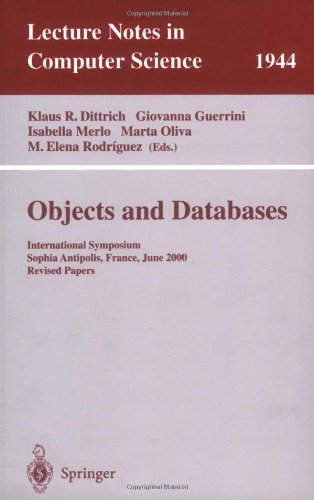

Most ebook files are in PDF format, so you can easily read them using various software such as Foxit Reader or directly on the Google Chrome browser.
Some ebook files are released by publishers in other formats such as .awz, .mobi, .epub, .fb2, etc. You may need to install specific software to read these formats on mobile/PC, such as Calibre.
Please read the tutorial at this link: https://ebookbell.com/faq
We offer FREE conversion to the popular formats you request; however, this may take some time. Therefore, right after payment, please email us, and we will try to provide the service as quickly as possible.
For some exceptional file formats or broken links (if any), please refrain from opening any disputes. Instead, email us first, and we will try to assist within a maximum of 6 hours.
EbookBell Team

4.7
26 reviewsThese post-proceedings contain the revised versions of the papers presented at the \Symposium on Objects and Databases" which was held in Sophia-Antipolis, France, June 13, 2000, in conjunction with the Fourteenth European Conference on Object-Oriented Programming, ECOOP 2000. This event continued the t- dition established the year before in Lisbon (Portugal) with the First Workshop on Object-Oriented Databases. The goal of the symposium was to bring together researchers working in various corners of the eld of objects and databases, to discuss the current state of research in the eld and to critically evaluate existing solutions in terms of their current usage, their successes and limitations, and their potential for new applications. The organizing committee received 21 papers which were reviewed by a p- gram committee of people active in the eld of objects and databases. There were 3 reviews for each paper, and nally the organizing committee selected 9 long papers, 2 short papers, and a demonstration to be presented and discussed at the symposium. The selected papers cover a wide spectrum of topics, including data modeling concepts, persistent object languages, consistency and integrity of persistent data, storage structures, class versioning and schema evolution, query languages, and temporal object-oriented databases. In addition to the regular papers, the symposium included an invited p- sentation, given by Prof. Malcolm Atkinson from the University of Glasgow (Scotland) where he heads the Persistence and Distribution Group.